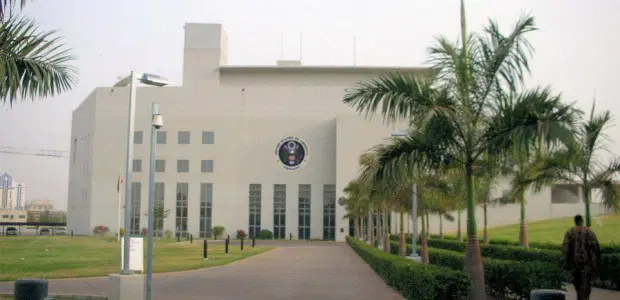Nigerian banks and merchant banks in the first quarter of this year, borrowed a sum of N30.45 trillion from the Central Bank of Nigeria, an increase of 514 per cent Year-on-Year from N4.96 trillion in the first quarter of 2023, amid excess liquidity.
To access liquidity to run their day-to-day business operations, the CBN provides the Standing Lening Facility, a short-term lending window for banks and merchant banks.
In the CBN data analysed, banks and merchant banks borrowed N2.75 trillion in January, a 419.95 per cent YoY increase from N528.16 billion in January 2023, while in February 2024, a total of N5.97 trillion was borrowed by banks through the SLF, a significant increase of 1,214 per cent YoY from N453.7 billion February 2023, according to Thisday.
In addition, banks and merchant banks borrowed N21.74 trillion from CBN in March 2024, a growth of 446.9 per cent YoY growth from N3.98 trillion borrowed in March 2023.
Experts ascribed the increment in banks borrowing from CBN to the dwindling Naira at the foreign exchange market, in addition to rising inflation and apex bank mopping up excess liquidity in the financial sector.
Commenting, the Chief Executive Officer of the Centre for Promotion of Private Enterprises, Dr. Muda Yusuf stated, “This is a reflection of liquidity pressure some of the banks are going through. The facility is typically short-term.
“This may not necessarily indicate that the banks are stressed or unstable. Meanwhile, the recapitalisation of banks is long overdue. The minimum capital requirement of N25 billion is no longer adequate if discounted for inflation.”
Meanwhile, the Vice President of Highcap Securities, Mr. David Adnori, said, “The development points to a lack of liquidity on the part of banks. Monetary policy has been tightening and this has led to low liquidity. It is cheaper for banks to borrow from the CBN. This development is not positive but negative. We cannot continue to tighten because it will reflect on economic growth.”
One of the approaches adopted by the CBN to tighten liquidity in the financial system was when the Monetary Policy Committee of the CBN in March 2024 unanimously narrowed the asymmetric corridor to +100/-300 basis points around the Monetary Policy Rate.
At its second meeting in 2024, the Monetary Policy Committee of the Central Bank voted to raise the MPR significantly to 24.75 %, above our expectations of 150 basis points.
The committee voted to retain Cash Reserve Requirement at 45.0 per cent and retained the Liquidity ratio at 30 per cent.
In addition, the CRR for merchant banks has been raised from 10% to 14.0 %.
The data also showed that banks and merchant banks’ deposits with CBN dropped by 7.29 per cent to N1.6 trillion in Q1 2024 from N1.73 trillion in Q1 2023.
Banks and merchant banks make use of the SDF to deposit excess funds with the CBN and it comes with interest.
SDF is an overnight deposit facility that allows banks to park excess funds to CBN and earn interest.
The Central Bank of Nigeria Governor, Mr Olayemi Cardoso announced that the removal of a ceiling on remunerative SDFs would result in increased liquidity management and increased activities at the window.










